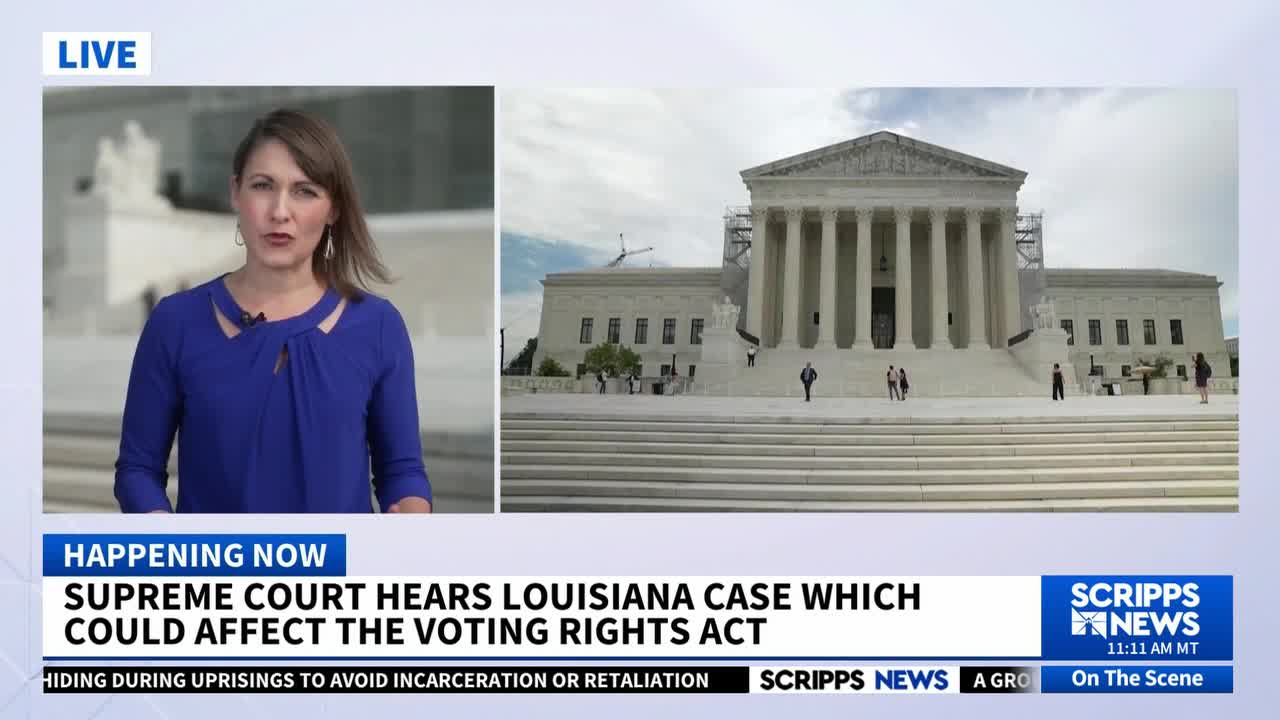The U.S. Supreme Court on Wednesday heard arguments in a Republican-led challenge to the Voting Rights Act that could eliminate key protections against racial discrimination in redistricting. Several justices appeared poised to weaken the landmark law.
The case centers on Section 2 of the civil rights law, which prohibits racial discrimination in voting practices, including how election maps are drawn. The justices spent nearly three hours debating how much — if at all — race can factor into remedies when a Section 2 violation is found.
According to The Associated Press, Chief Justice John Roberts and Justice Brett Kavanaugh questioned whether the Voting Rights Act still justifies race-based districts, signaling skepticism about extending those protections indefinitely.
The dispute stems from Louisiana’s congressional district map drawn after the 2020 census. In 2022, the state created just one majority-Black district, even though about one-third of Louisiana’s population is Black. Black voters sued, arguing the state should have two majority-Black districts out of six. Lower courts agreed, ruling that the map violated Section 2.
IN RELATED NEWS | Missouri is next to answer Trump's call for redrawn maps that boost GOP in 2026
To avoid a court-imposed map, Louisiana lawmakers adopted a new plan adding a second majority-Black district. That move sparked another lawsuit — this time from non-Black plaintiffs, who argued the revised map discriminated against them.
Now, justices are weighing competing arguments over whether limited racial considerations can be used to fix past racial discrimination in redistricting. Proponents of the 2024 map — used in last year’s elections — say such consideration is permissible when addressing Section 2 violations. Opponents, including Louisiana’s own state officials, argue redistricting should be entirely race-neutral.
The case is a continuation of a dispute the court first heard in March. Wednesday’s hearing suggested the justices wanted a broader examination before issuing a ruling.
A decision could significantly affect redistricting nationwide. If the court determines that Section 2 is unconstitutional or narrows its scope, states could have more leeway to draw political maps without considering racial impacts — potentially affecting representation for minority voters.
IN CASE YOU MISSED IT | California is moving forward with a partisan redistricting effort to counter Texas' move
The ramifications, meanwhile, could also reach beyond election maps. Legal experts warn the decision could influence policies in housing, employment and other areas where race-based rules have long been protected under federal law.
One attorney involved in the case urged the court to rule in time for new congressional maps to be drawn ahead of the 2026 midterm elections. Depending on the outcome, other states — particularly in the South — could launch new redistricting efforts.
The court’s decision is expected before the end of its current term in June.
This story was reported on-air by a journalist and has been converted to this platform with the assistance of AI. Our editorial team verifies all reporting on all platforms for fairness and accuracy.





